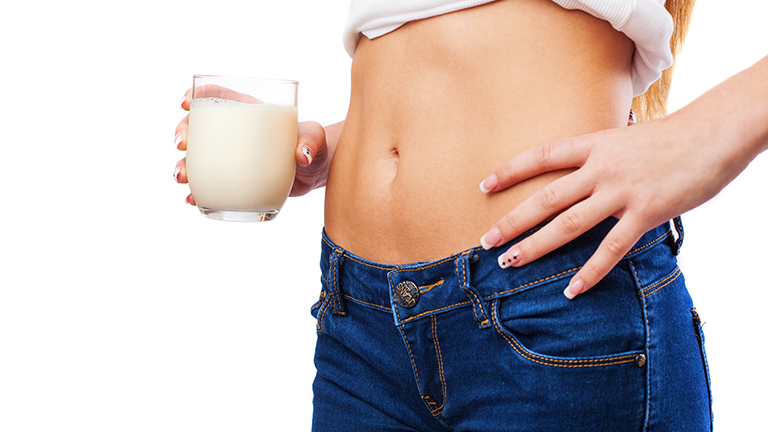Probiotics for IBS and Gut Health: Digestive health has become one of the most discussed topics in modern healthcare. With rising awareness about the gut microbiome and its impact on the entire body, probiotics have emerged as a natural therapy that supports both general wellness and targeted conditions such as irritable bowel syndrome (IBS).
IBS affects more than 10% of the global population, with higher prevalence in Western countries such as the United States, the United Kingdom, and Canada. It is characterised by abdominal pain, bloating, irregular bowel habits, and digestive discomfort that can affect daily living, work productivity, and mental health. Traditional treatments often rely on antispasmodics, laxatives, or dietary adjustments, but many people are turning to probiotics for IBS and gut health because they address the root issue—microbial imbalance.
Probiotics are live microorganisms, usually bacteria or yeast, that when consumed in adequate amounts, provide health benefits. They are often called “good bacteria” because they restore balance in the gut ecosystem, enhance digestion, regulate immune function, and reduce inflammation. Their use in IBS management is supported by growing clinical evidence and real-world success stories.
This guide dives deep into how probiotics work, the best strains for IBS, natural and supplemental sources, lifestyle integration, and global research that demonstrates their effectiveness.
[INSERT_ELEMENTOR id=”5108″]
Understanding IBS and Its Connection to Gut Health
IBS is classified as a functional gastrointestinal disorder, meaning there is no visible damage to the intestines, yet symptoms persist due to abnormal gut function. It is often diagnosed based on symptom patterns, since blood tests and imaging usually come back normal.
The main subtypes of IBS are:
- IBS-D (diarrhea-predominant): Frequent loose stools and urgency.
- IBS-C (constipation-predominant): Hard, infrequent stools.
- IBS-M (mixed type): Alternating diarrhea and constipation.
- IBS-U (unclassified): Symptoms don’t fit neatly into one category.
Research shows that IBS is closely linked to gut microbiome imbalance. People with IBS often have fewer beneficial bacteria such as Bifido bacteria and Lactobacilli, and higher amounts of harmful species that trigger fermentation, gas production, and inflammation.
The gut-brain axis also plays a role. Stress, anxiety, and depression can worsen IBS symptoms by influencing nerve signals between the brain and gut. Since probiotics can affect both gut flora and gut-brain communication, they represent a holistic approach to IBS relief.
How Probiotics Work in the Digestive System
Probiotics provide multiple benefits for the gut:
- Restoring microbial balance: They replenish good bacteria while suppressing harmful pathogens.
- Enhancing gut barrier function: They strengthen intestinal lining and prevent “leaky gut,” which reduces inflammation.
- Producing beneficial compounds: Probiotics produce short-chain fatty acids like butyrate, which nourish colon cells and regulate bowel function.
- Improving motility: They normalise the speed of intestinal contractions, addressing both diarrhea and constipation.
- Immune regulation: They calm overactive immune responses linked to IBS flare-ups.
- Gut-brain axis influence: By producing neurotransmitters like serotonin and GABA, probiotics may reduce anxiety and stress-related digestive issues.
The cumulative effect of these actions makes probiotics for IBS and gut health a scientifically backed option for long-term management.
Best Probiotic Strains for IBS Relief
Not every probiotic is effective for IBS. The health benefits of probiotics are strain-specific, meaning results depend on the exact type used. Clinical trials highlight the following as the most effective:
Lactobacillus for IBS
Lactobacillus species are widely studied for their digestive benefits. Lactobacillus plantarum has shown significant results in reducing abdominal pain and bloating, while Lactobacillus acidophilus supports overall gut flora balance.
Bifidobacterium and Gut Balance
Bifidobacterium infantis has been tested in IBS patients and demonstrated improvement in bowel habits and reduced bloating. Bifidobacterium bifidum helps regulate the immune response and prevent gut inflammation.
Saccharomyces boulardii for Digestion
This probiotic yeast is effective against diarrhea-predominant IBS, antibiotic-associated diarrhea, and gut infections. It enhances gut lining integrity and restores microbial balance.
Multi-Strain Formulas for Better Results
Research indicates that multi-strain probiotic supplements are more effective than single strains because they provide broad-spectrum support, targeting multiple IBS symptoms at once.
Top 5 Probiotics for IBS
1. Bifidobacterium infantis 35624
This strain is one of the most widely researched for IBS. Clinical trials show it reduces abdominal pain, bloating, constipation, and diarrhea. It works by regulating inflammation in the gut and restoring healthy microbiota balance. Many probiotic supplements in the USA, UK, and Canada use this strain for targeted IBS relief.
2. Lactobacillus plantarum 299v
Known for its ability to reduce bloating and improve overall digestion, Lactobacillus plantarum is particularly effective for IBS patients with gas and abdominal discomfort. Studies indicate it improves stool consistency and reduces pain within a few weeks of use.
3. Saccharomyces boulardii CNCM I-745
This probiotic yeast is highly beneficial for diarrhea-predominant IBS (IBS-D). It helps regulate bowel movements, prevents harmful bacteria overgrowth, and strengthens the gut lining. It’s also resistant to antibiotics, making it useful when gut flora is disrupted by medications.
4. Bifidobacterium bifidum MIMBb75
Research from Europe shows that this strain improves IBS symptoms including abdominal pain, bloating, and irregular stools. It has strong anti-inflammatory properties and enhances gut barrier function, making it ideal for sensitive digestive systems.
5. Multi-Strain Probiotic Blends
While single strains are effective, multi-strain formulas are often more powerful for IBS management. Blends combining Lactobacillus, Bifidobacterium, and Saccharomyces offer broader benefits, targeting constipation, diarrhea, and bloating simultaneously. Clinical studies suggest that multi-strain supplements provide superior long-term relief compared to single-strain probiotics.
Benefits of Probiotics for Gut Health and IBS
Probiotics are not only beneficial for symptom relief but also improve overall digestive resilience.
Reducing Bloating and Gas
One of the most frustrating IBS symptoms is bloating caused by excessive fermentation in the gut. Probiotics reduce harmful bacteria that produce gas, while promoting healthy fermentation that leads to less discomfort.
Managing Diarrhea and Constipation
By regulating gut motility, probiotics help normalize bowel frequency. IBS-D patients often see reduced urgency, while IBS-C patients benefit from softer, more regular stools.
Improving Nutrient Absorption
A healthy gut absorbs nutrients more efficiently. Probiotics support better digestion of proteins, fats, and vitamins, which can reduce fatigue and support overall well-being.
Supporting Immune Health
Since 70% of the immune system resides in the gut, probiotics play a role in regulating immune activity and reducing systemic inflammation linked to IBS.
Enhancing Mental Health
Through the gut-brain axis, probiotics can improve mood and reduce anxiety, which in turn lowers IBS symptom severity. This is especially important in patients with stress-related flare-ups.
Natural Sources of Probiotics for IBS
Fermented foods provide natural sources of probiotics that have been consumed for centuries.
Fermented Foods for Gut Healing
Yogurt with live cultures, kefir, sauerkraut, kimchi, miso, and tempeh are rich in beneficial bacteria. Regular consumption can help replenish gut flora naturally.
Probiotic-Rich Drinks for Digestion
Drinks such as kefir, kombucha, and fermented dairy or plant-based beverages are convenient ways to support daily probiotic intake.
While natural foods are excellent, therapeutic doses often require supplements for IBS patients.
Probiotic Supplements for IBS and Gut Health
Supplements allow precise dosing and targeted strain selection.
Choosing the Right Probiotic Supplement
Look for products that specify strains (not just species) and list colony-forming units (CFUs). Clinical studies suggest at least 10 billion CFUs per day for noticeable effects.
Dosage and Safety Guidelines
Most people tolerate probiotics well, but beginners may experience mild bloating or gas. These usually subside within a week. People with immune disorders should seek medical advice before use.
Combining Prebiotics and Probiotics for Maximum Gut Benefits
Prebiotics are fibers that feed beneficial bacteria. When paired with probiotics, they create a synergistic effect called synbiotics. Foods rich in prebiotics include onions, garlic, asparagus, bananas, and whole oats.
Combining prebiotics and probiotics enhances gut microbiome diversity and strengthens long-term digestive health.
Lifestyle and Dietary Tips to Support Gut Health
Probiotics work best when combined with healthy habits. Stress management techniques such as yoga, meditation, and regular exercise improve gut-brain signaling. A high-fiber diet, adequate hydration, and limiting processed foods, caffeine, and artificial sweeteners further reduce IBS flare-ups.
Sleep also plays a crucial role. Poor sleep disrupts the microbiome, while consistent rest supports probiotic effectiveness.
Potential Side Effects of Probiotics for IBS
Though generally safe, probiotics may cause mild side effects at the beginning of supplementation. These include temporary bloating, mild diarrhea, or cramping. People with severe illnesses, organ transplants, or compromised immunity should consult a healthcare provider before starting probiotics.
Scientific Studies on Probiotics for IBS Management
A growing body of research supports probiotics for IBS and gut health.
- A 2016 meta-analysis published in the American Journal of Gastroenterology concluded that probiotics significantly improved global IBS symptoms and quality of life.
- A 2019 clinical trial in the UK found that multi-strain probiotics reduced bloating and abdominal pain in IBS patients within 8 weeks.
- Canadian studies emphasize the role of Bifidobacterium infantis in improving bowel regularity and reducing inflammation.
While results vary by strain and individual, the overall evidence supports probiotics as an effective tool for IBS management.
FAQs on Probiotics for IBS and Gut Health
How long do probiotics take to work for IBS?
Most people notice improvement within 2 to 4 weeks, though some may need 8 weeks for full benefits.
Can probiotics replace IBS medications?
Probiotics can complement but not always replace medications. Many people use them alongside dietary changes and stress management.
Which probiotics are best for constipation?
Bifidobacterium lactis and Lactobacillus plantarum are particularly helpful for constipation.
Are probiotics safe for children with IBS?
Certain strains are safe for children, but dosage should be adjusted and guided by a pediatrician.
Do probiotics cure IBS?
Probiotics are not a cure, but they manage symptoms and improve quality of life. IBS is a chronic condition that requires ongoing management.
Conclusion – Can Probiotics Really Help IBS and Gut Health
Probiotics for IBS and gut health represent one of the most promising natural therapies available today. By restoring microbial balance, regulating bowel movements, and supporting gut-brain communication, probiotics address the root causes of IBS symptoms rather than masking them.
For people in the USA, UK, Canada, and worldwide, probiotics are widely accessible through both supplements and natural foods. When combined with prebiotics, lifestyle adjustments, and stress management, probiotics offer long-lasting improvements in digestive wellness.
While they may not completely cure IBS, the growing scientific evidence confirms that probiotics provide safe, effective, and natural support for gut health, making them a valuable addition to any IBS management plan.



